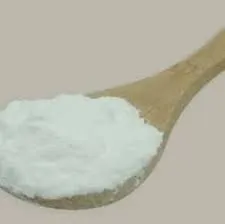Chemical Cooling Tower Water Treatment An Essential Approach for Sustainable Operations
Cooling towers play a critical role in various industrial processes, providing efficient heat exchange and temperature regulation. However, maintaining proper water chemistry in cooling towers is crucial to ensure their efficient operation, longevity, and environmental compliance. Chemical water treatment is essential for preventing corrosion, scaling, and biological growth, which can hinder performance and lead to costly repairs or downtime.
The Importance of Water Treatment
Cooling towers utilize large quantities of water to dissipate heat generated during industrial processes. This water, after circulation, typically returns to the system with changes in temperature and chemistry. Without proper treatment, the water can accumulate impurities, including minerals, organic matter, and microorganisms. These contaminants can lead to several operational challenges
1. Scaling When minerals, such as calcium and magnesium, precipitate out of the water at high temperatures, they form scale deposits on heat exchange surfaces. This scaling reduces heat transfer efficiency and increases energy consumption, potentially leading to system failure.
2. Corrosion Unguarded metal surfaces within the cooling tower can corrode due to the presence of oxygen, chlorides, and other corrosive agents in the water. Corrosion not only damages the cooling tower components but can also lead to leaks and further operational inefficiencies.
3. Biological Growth Cooling towers are prone to microbial contamination, including bacteria, fungi, and algae. These microorganisms thrive in warm, nutrient-rich environments and can lead to biofilm formation, which impairs water flow and contributes to scaling. Moreover, certain bacteria, such as Legionella, pose significant health risks.
Chemical Treatment Strategies
To counter these challenges, various chemical treatments are employed
. These strategies can be grouped into several categorieschemical cooling tower water treatment

1. Scale Inhibitors These chemicals work by interfering with the crystallization of minerals, preventing their aggregation and subsequent deposition on surfaces. Common scale inhibitors include polyacrylic acids and phosphonates, which maintain mineral solubility under varying temperature conditions.
2. Corrosion Inhibitors These compounds form a protective layer on metal surfaces, reducing their exposure to corrosive agents. Commonly used corrosion inhibitors include chromates, nitrates, and organic compounds like benzotriazole.
3. Biocides Effective management of biological contaminants is crucial for operational integrity. Biocides are specialized chemicals designed to kill or inhibit the growth of microorganisms. The selection of biocides, such as bromine, chlorine, or non-oxidizing agents (e.g., quaternary ammonium compounds), should consider toxicity and environmental impact.
4. pH Adjusters Maintaining appropriate pH levels is essential for both scaling and corrosion control. pH adjusters such as sodium hydroxide or sulfuric acid can be used to regulate water pH, ensuring it remains within an optimal range (typically between 6.5 and 8.5).
5. Filtration and Continuous Monitoring Alongside chemical treatment, proper filtration methods, such as sand filters or cartridge filters, play a vital role in removing suspended solids. Continuous monitoring systems help maintain water chemistry by recording parameters like conductivity, pH, and microbiological activity, allowing for timely interventions.
Environmental Considerations and Sustainability
With increasing environmental regulations, industries are under pressure to adopt sustainable practices. Effective chemical treatment not only extends the life of cooling towers but also reduces water wastage and minimizes the environmental impact of thermal discharges. By ensuring that the cooling tower operates efficiently, organizations can lower energy consumption, reduce greenhouse gas emissions, and enhance overall operational sustainability.
Conclusion
In conclusion, proper chemical water treatment in cooling towers is paramount for efficient system operation, longevity, and environmental stewardship. By implementing a comprehensive treatment plan that combines scale inhibitors, corrosion inhibitors, biocides, pH adjusters, and continuous monitoring, industries can overcome the challenges posed by cooling tower systems. This not only leads to enhanced performance but also contributes to a more sustainable future, ensuring that cooling towers can continue to meet industrial demands while protecting public health and the environment.

